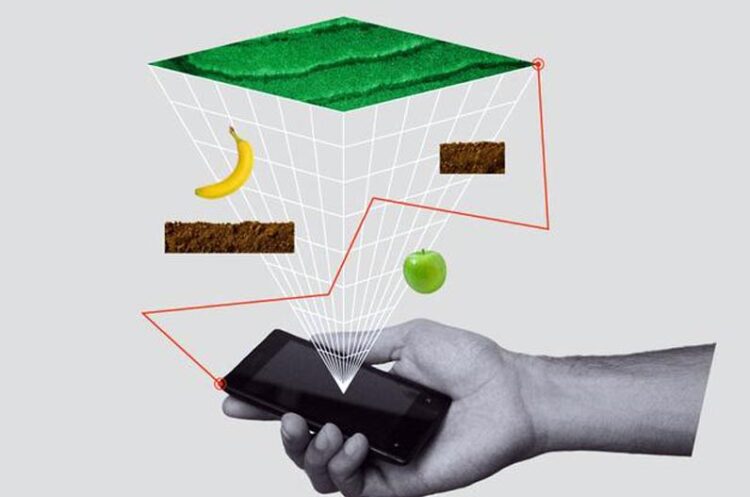Using data science to combat poverty

The mobile app YourVCCA, developed by Empa and BASE, aims to give smallholder farmers in rural India access to the cold chain market.
Image: BASE
In January 2021, Empa and BASE (Basel Agency for Sustainable Energy) were among the winners of the prestigious Inclusive Growth and Recovery Challenge by data.org, a platform for partnerships committed to build the field of data science for social impact. In their project, the team is developing a mobile app that aims to give smallholder farmers in rural India advice on how to better store their fresh foods and when to sell them. Eight months into the project, the team has forged partnerships with cooling solution providers, collected open-source data for India, and developed digital food twins.
India is one of the world’s largest food producers. However, insufficient refrigeration possibilities and other bottlenecks in the supply chain result in a waste of up to a third of the food produced – an estimated billion-dollar loss. Only 6% of the food moves through the cold chain, compared to about 60% in developed countries. The situation is especially problematic for smallholder farmers, which are major contributors to food production in India. Financial, technological, and knowledge barriers prevent these farmers from accessing sustainable cooling solutions to save food – and secure their livelihoods.
To tackle this challenge, Empa and BASE are developing an open-access, data-science based mobile app to give smallholders access to sustainable cooling facilities, pre- and post-harvest expertise, and market intelligence. The app, Your Virtual Cold-Chain Assistant (YourVCCA), includes various data inputs such as weather and climate data, satellite images, geographic location data, fresh-produce yields, hygrothermal cold-storage sensor data, forecasted remaining shelf life of produce, and real-time market prices. By equipping smallholders with appropriate data, the project aims to improve food security, increase smallholder incomes, reduce food loss, and minimize the impact of food production on the global climate.
Access to cooling facilities and data
A decisive way to tackle smallholders’ access to cooling facilities is by launching partnerships with cooling solution providers. One of the partners provides cooling services in a market visited by some 500 smallholder farmers. This project, which serves as a pilot for YourVCCA, will collect hygrothermal and usage data and provide insights on optimal storage conditions and the expected shelf life of crops. The project team aims to collect datasets and consolidate them into a multi-layer map of India, displaying the most promising cold room storage sites in the country.
At the same time, the effectiveness of YourVCCA will be tested, including an image-based machine-learning model to grade fruits after harvest. Moreover, the project team is developing visual, physics-based food twins that predict the expected shelf life of the stored fruit in real time. “At Empa, we actually predict how long you can store a product and how smallholder farmers should store these products in order for them to last as long as possible”, says Empa researcher Thijs Defraeye. These food twins are about to be made available to farmers and cooling service providers via a web-based platform or via an executable version that can run on mobile devices. In YourVCCA, these food twins and their shelf life predictions are combined with market price forecasts to instruct farmers when to best sell their produce. “We have designed YourVCCA as a kind of virtual coach that advises users how to store their products, how much of the quality is still there, and when they should sell”, adds Defraeye.
Currently, the project team is working on a preliminary architecture of the user interface for YourVCCA. Its user friendliness for both smallholder farmers and cooling system providers will be tested in the coming months. “The progress is very promising”, claims Defraeye. “If we can harness the data, we can save much more food, and this would benefit both the local communities and the climate. We all know that the technology is there, but currently the solutions are not tailored to serve smallholder farmers, as the financial incentive to do so is just lower than with larger agricultural companies.”
Wissenschaftliche Ansprechpartner:
Prof. Dr. Thijs Defraeye
Biomimetic Membranes and Textiles
Phone +41 58 765 47 90
Thijs.Defraeye@empa.ch
Editor / Media contact
Amanda Caracas
Communication
Phone +41 58 765 60 59
redaktion@empa.ch
Weitere Informationen:
https://www.empa.ch/web/s604/food-waste Empa media release
https://energy-base.org/projects/your-virtual-cold-chain-assistant/ Project website
Media Contact
All latest news from the category: Information Technology
Here you can find a summary of innovations in the fields of information and data processing and up-to-date developments on IT equipment and hardware.
This area covers topics such as IT services, IT architectures, IT management and telecommunications.
Newest articles

Innovative 3D printed scaffolds offer new hope for bone healing
Researchers at the Institute for Bioengineering of Catalonia have developed novel 3D printed PLA-CaP scaffolds that promote blood vessel formation, ensuring better healing and regeneration of bone tissue. Bone is…

The surprising role of gut infection in Alzheimer’s disease
ASU- and Banner Alzheimer’s Institute-led study implicates link between a common virus and the disease, which travels from the gut to the brain and may be a target for antiviral…

Molecular gardening: New enzymes discovered for protein modification pruning
How deubiquitinases USP53 and USP54 cleave long polyubiquitin chains and how the former is linked to liver disease in children. Deubiquitinases (DUBs) are enzymes used by cells to trim protein…



